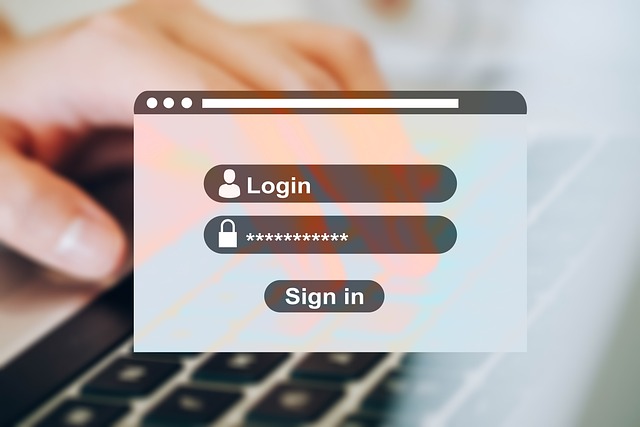First of all, get that thought out of your mind right now! We get it. In today’s fast-paced digital landscape, every login requires a complex dance of passwords, codes and verifications. It’s no wonder that multi-factor authentication (MFA) feels like a thorn in our collective side.
While MFA can be such a pain, it’s a vital component of any robust cybersecurity strategy. And that’s especially true for businesses and organizations of any size aiming to protect their confidential data and their business IT systems at large.
Why? Because organizations likely have dozens, hundreds or even thousands of different logins to accounts and software managing the day-to-day. That’s not to mention the myriad professional and personal devices being used in today’s work-from-home and bring-your-own-device culture, each serving as potential endpoints for exploitation by cybercriminals.
Using strong passwords – and even varying and changing them regularly – isn’t defense enough for your business’s sensitive data. We’ll explain why. But first, we’ll allow a sounding board for your multi-factor authentication frustrations.
The Agony of Multi-Factor Authentication: Statistics Speak Louder Than Words
A staggering 81 percent of U.S. adults find current security procedures unnecessarily complicated. Remembering intricate passwords, dealing with two-step verifications, and deciphering captcha codes can be downright frustrating.
- 64% are irked by the need for elaborate passwords with a mix of numbers, symbols and capital letters.
- 47% are weary of answering endless security questions.
- 48% express frustration with the additional step of two-step verification.
- 71% find captcha codes vexing due to their often illegible nature.
- 71% believe there are simply too many security measures.
It’s a chorus of complaints, and as far as complaints go, they have some merit. The hassle of keeping track of multiple passwords for various online accounts, the annoyance of being randomly logged out of email systems, and the inconvenience of seemingly endless security protocols contribute to the collective sigh of users.
And here’s why those complaints aren’t worth the breath to say them.
The Greater Pain: Not Having Multi-Factor Authentication
A great paradox: the pain of using multi-factor authentication pales in comparison to the potential consequences of not having it. In a world where cyber threats and attacks are rampant and ever more sophisticated, MFA is a digital shield protecting your organization’s sensitive information from falling into the wrong hands.
Consider These Alarming Statistics
- 55% of businesses have been victims of banking fraud.
- Only 43% of business executives were satisfied with how their bank dealt with the fraud.
And that’s just the threat of cybersecurity directly impacting banking. There are distinct cyber threats facing EVERY industry – from health care to education and even that Mom-and-Pop bakery down the street – that directly or indirectly impact finances and daily operations.
This highlights a stark reality: without robust security measures like MFA, the chances of falling victim to cybercrime increase significantly. It’s not just about the inconvenience of remembering passwords. It’s about safeguarding your organization’s financial accounts, personal information, client data and digital identity.
The Benefits of MFA: A Digital Shield You Can’t Afford to Ignore
- Enhanced Security: MFA adds an extra layer of protection beyond passwords, requiring additional verification steps that significantly reduce the risk of unauthorized access.
- Protection Against Credential Theft: With stolen credentials topping the list of cyber threats, MFA is a formidable barrier, even if your password is compromised.
- Secure Financial Transactions: In a world where online transactions are the norm, MFA ensures that your financial accounts remain secure, protecting you from potential fraud.
- Data Privacy Assurance: Safeguard your personal and sensitive information from prying eyes, ensuring that only authorized users can access confidential data.
Making MFA Easier: Quick Tips for a Seamless Experience
- Use Authenticator Apps: Instead of relying on SMS for verification, authenticator apps generate secure codes directly on your device, reducing dependency on network signals.
- Biometric Authentication: Leverage fingerprint or facial recognition for quick and secure access, making authentication as simple as a touch or glance.
- Password Managers: Simplify your life by using password managers that not only generate complex passwords but also securely store them, eliminating the need for constant memorization.
- Device Recognition: Enable device recognition features to remember trusted devices, reducing the frequency of MFA prompts for familiar logins.
- Educate & Train Users: Understanding the importance of MFA can enhance user cooperation. Provide training and information on the benefits, making it clear that the slight inconvenience is a small price for strong security.
More Reasons to Consider MFA:
- New Dark Web Audit Reveals 15 Billion Stolen Logins From 100,000 Breaches. (July 2020). Forbes.
- Google Says Hackers Steal Almost 250,000 Web Logins Each Week. (November 2017). CNN.
- You’ve Been Breached: Hackers Stole Nearly Half a Billion Personal Records in 2018. (February 2019). NBC.
- More Enterprises Use Multi-Factor Authentication to Secure Passwords. (October 2019). Security.
- Back to Basics: Multi-Factor Authentication (MFA). (December 2019). National Institute of Standards and Technology.
- Microsoft: Using Multi-Factor Authentication Blocks 99% of Account Hacks. (August 2019). ZD Net.
Your Solution: Acme Business for Managed Cybersecurity
Don’t let the frustrations of multi-factor authentication deter you from its immense benefits. At Acme Business, we understand the delicate balance between security and user experience. Our managed IT and cybersecurity services are tailored to provide the strongest possible protection without compromising usability.
Embrace the security measures that may cause a slight discomfort, but shield you from the potential devastation of cyber threats.
Make the smart choice. Secure your digital future with Acme Business – Because Security Matters. Call Acme Business at (716) 372-1325, visit our website for expert guidance, and connect with us on LinkedIn.


Recent Comments